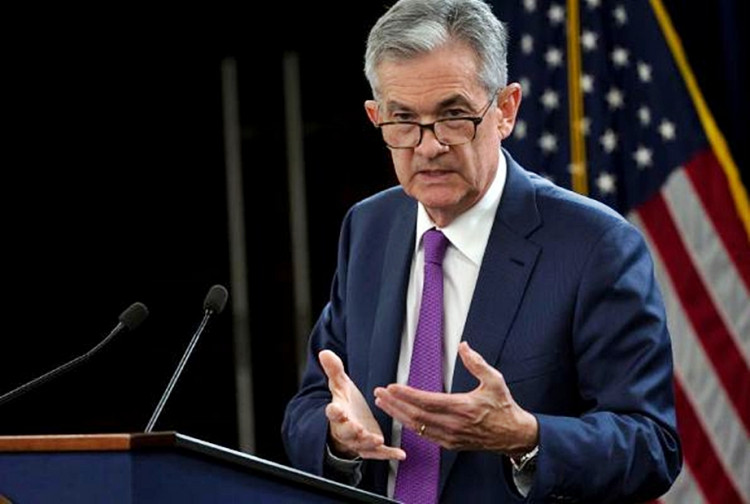U.S. Federal Reserve Chairman Jerome Powell conveyed his extreme anxiety about the escalating U.S. national debt and the equally massive overall budget deficit.
The total U.S. national debt as of today stands at $21.9 trillion and is rising massively every second, as indicated in the website, usdebtclock.org. In the fiscal year 2018 (October 2017 to September 2018), the federal deficit came to $779 billion, according to government data. This year, or FY 2019, the federal government places the deficit at $984 billion in its latest budget estimate.
"I'm very worried about it," said Powell about the national debt during a meeting of The Economic Club of Washington, D.C. "From the Fed's standpoint, we're really looking at a business cycle length: that's our frame of reference."
Powell said the long-run fiscal, non-sustainability of the U.S. federal government isn't really something that plays into the medium term that is relevant for the Fed's policy decisions. He referred to this as a long-run issue the Fed definitely needs to face, and ultimately, will have no choice but to face.
The U.S. has had sustained annual debts higher than that for FY2018. But the national debt incurred in 2009 and 2010 took place when the economy was recovering from the Great Recession of 2008. Today, however, the annual national debt is growing despite a strong economy and this is a dangerous anomaly.
Part of the reason for the rising national debt was the first year of the Tax Cut and Jobs Act, which was the only significant achievement of president Donald Trump and the Republican Party in 2017. This law slashed tax rates for business organizations and rich Americans without compensating for the massive loss in tax revenues.
Consequently, tax revenue today is nearly flat while government spending has risen. The federal budget deficit today stands at $855 billion.
And because of the corporate tax cuts in the Tax Cuts and Jobs Act, corporate tax receipts have fallen by 30 percent.
David Wessel, director of the Hutchins Center on Fiscal and Monetary Policy at the Brookings Institution, said you'd likely expect at a time like this, with revenues rising faster than spending, because the economy is strong, more people are working and paying taxes while fewer people are collecting unemployment benefits and such that "the deficit would shrink."
"We see the opposite, and that's large because of the tax cut."






